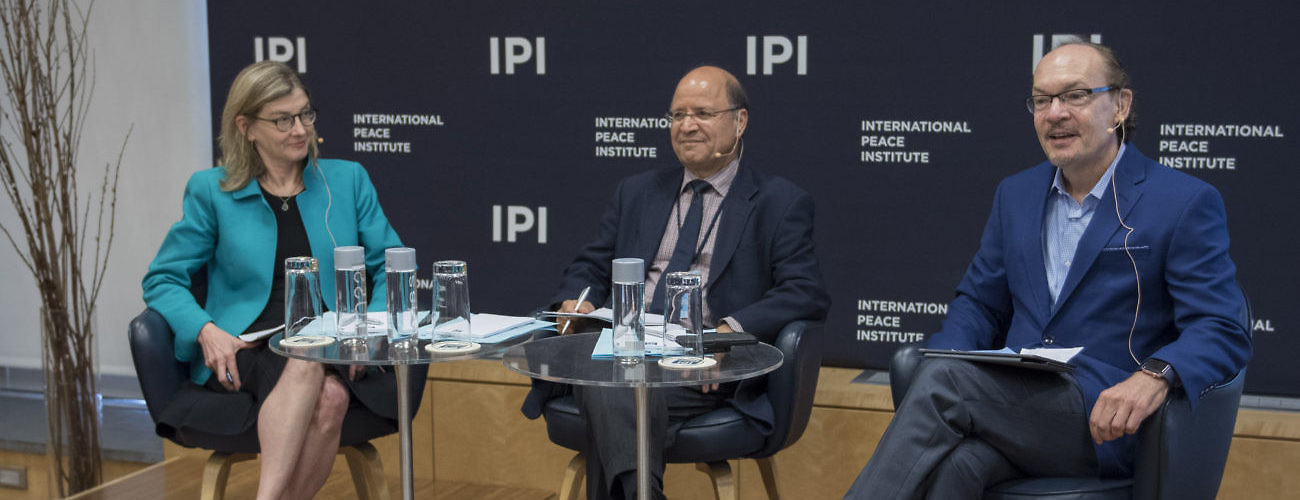On September 20th, IPI, Mercy Corps and the United States Institute of Peace collaborated on a breakfast policy forum called “Strengthening the Foundations of Peace: How the 2030 Agenda Reduces Global Levels of Violence and Sustains Peace.”
Moderating the event, IPI Senior Adviser Youssef Mahmoud declared, “The 2030 Agenda and the Sustaining Peace Agenda are increasingly connected; either they stand together or they fall together. Strengthening accountable institutions fortifies foundations of peace and paves the road for sustainable development as articulated in Goal 16,” he said.
Sustainable Development Goal 16 calls for promoting peaceful and inclusive societies for sustainable development, providing access to justice for all and building effective, accountable, and inclusive institutions.
Nancy Lindborg, President of the United States Institute of Peace, said that delivering on SDG 16 required “tackling the fragility at the heart of conflicts.” To that end, she counseled paying more attention to the work of peace activists at the local level, saying that “sometimes in the absence of creating national peace, local actors working hard on creating local pockets of peace don’t get seen or understood by the international community.”
That community, she said, needed to “understand, embrace and support local actors creating local peace accords, educational avenues for young people to build peace in their communities.”
She warned that much of that conversation was occurring only in the developed world and cautioned that “jobs and private sector investment alone is not enough.”
“In addition to development approaches,” she said, “skills and tools that people within communities can use to bridge divides are skills of facilitation and negotiation and must be brought into the development agenda.”
Terje Rød-Larsen, IPI’s President, reported that IPI case studies in Guatemala, Gambia, Lebanon and Myanmar showed that “peace does not necessarily trigger development, but these need to be addressed simultaneously, and international support should be more sensitive to internal dynamics.”
The 2030 agenda, he noted, called for inclusive economic growth. But he added that implementation will require changing business models to ones that “focus on more than growth.” In that connection, he suggested hiring more women and offering them equal pay as well as hiring more youth from underrepresented communities, predicting that such steps would have “ripple effects on peace and development.”
Neal Keny-Guyer, the CEO of Mercy Corps, gave the example of a vocational training program run by his agency in Afghanistan where 80 percent of the young people enrolled kept their jobs but did not change their attitude about the Taliban.
“That was a wake up call for Mercy Corps,” he said. “The evidence was clear. We knew what doesn’t work, but what does work? If you combine a cash grant and stipend with vocational education, you come away with a great willingness to work with the government and be a productive citizen.”
He said that the world today is “multipolar, multi-stakeholder, multi-track— very different from the world of nations and global institutions that used to exist to solve problems. Today,” he said, “there is no problem where you won’t bring in the private sector or civil society.”
Shamil Idriss, the President and CEO of Search for Common Ground, said that “at the heart of the sustaining peace agenda is a focus on prevention, sustainable development and prevention.” He said that 10 years ago most humanitarian aid went to people affected by natural disasters but that today most of it goes to people victimized by violent conflict. “Conflict,” he concluded, “is now the primary cause of suffering and poverty today.”








